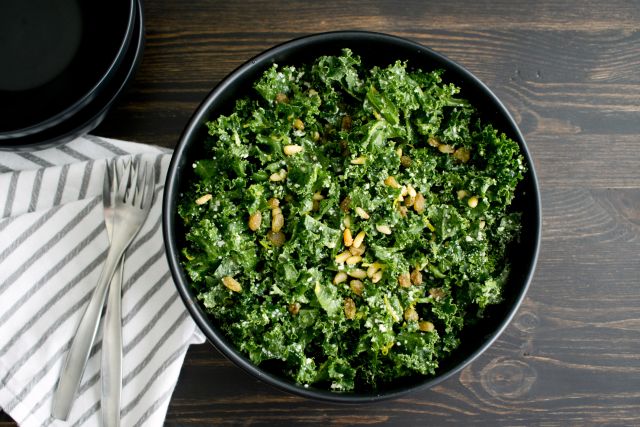Updated on July 18, 2022.
You know that staying out of the sun—and using sunscreen if you are soaking up rays—is essential to reducing your risk for skin cancer. But did you know that certain aspects of a healthy diet may also help?
A study published in the journal Dermatology in 2022 suggested that eating dark green leafy vegetables was associated with a lower risk of developing squamous cell carcinoma (SCC), the second most common form of skin cancer.
Which vegetables should you consider adding your plate? Dark green leafy greens include kale, spinach, Swiss chard, broccoli and collard greens. They’re rich in antioxidants and a slew of vitamins and minerals, including folate.
How leafy greens reduce risk
The Dermatology study included 1,128 Australian adults who filled out a series of dietary questionnaires between 1992 and 1996. People who ate higher amounts of dark green leafy vegetables were almost 60 percent less likely to be diagnosed with SCC over the course of 15 years, compared to people who ate very little.
Eating dark green leafy vegetables was also associated with about 60 percent lower risk of SCC in people who carry a certain genetic mutation that has been linked to increased risk for various types of cancers. This mutation lies in a gene named MTHFR, and it’s estimated that 20 to 40 percent of people may carry it. Studies suggest that the combination of carrying this genetic mutation and having folate deficiency may increase the risk for some types of cancer.
An earlier study published in the journal Carcinogenesis in 2007 found that people who carry this genetic mutation and have low levels of folate in the blood may be at increased risk for SCC.
More ways to keep skin protected
Researchers think that the lower risk of SCC in the Dermatology study may be related to high levels of folate in dark green leafy vegetables. Folate (also known as folic acid or vitamin B9) is a water-soluble essential nutrient, which means your body doesn’t store or make it on its own so you need to get a steady supply from the foods you eat.
Folate helps your cells work properly, and it plays an important role in building and repairing DNA. While the sun’s UV radiation can degrade folate in your skin, avoiding folate deficiency may help fend off several types of cancers.
Drinking too much alcohol can lead to folate deficiency. So if you drink alcohol, it’s important to do so in moderation. That means a limit of two drinks per day for men and one per day for women.
Too much of a good thing?
While some studies suggest folate may help protect against some types of cancers, it’s important not to go overboard when it comes to vitamin intake. Studies have also shown that taking supplements or having too much folate in your blood may actually be associated with increased risk for certain cancers, such as prostate cancer. More research is needed to tease out the effect of folate on different types of cancers, and how much is too much.
But as a general rule of thumb, it’s pretty difficult to get too much folate merely by eating folate-rich foods like leafy greens. Excessive folate intake tends to be the result of taking large doses of vitamins and other supplements.
Of course, nothing beats the tried-and-true basics of skin protection, such as wearing sunscreen and wide-brimmed hats, keeping skin covered, and avoiding the sun during peak hours. And, if you notice a suspicious spot on your skin, ask your healthcare provider about it.






